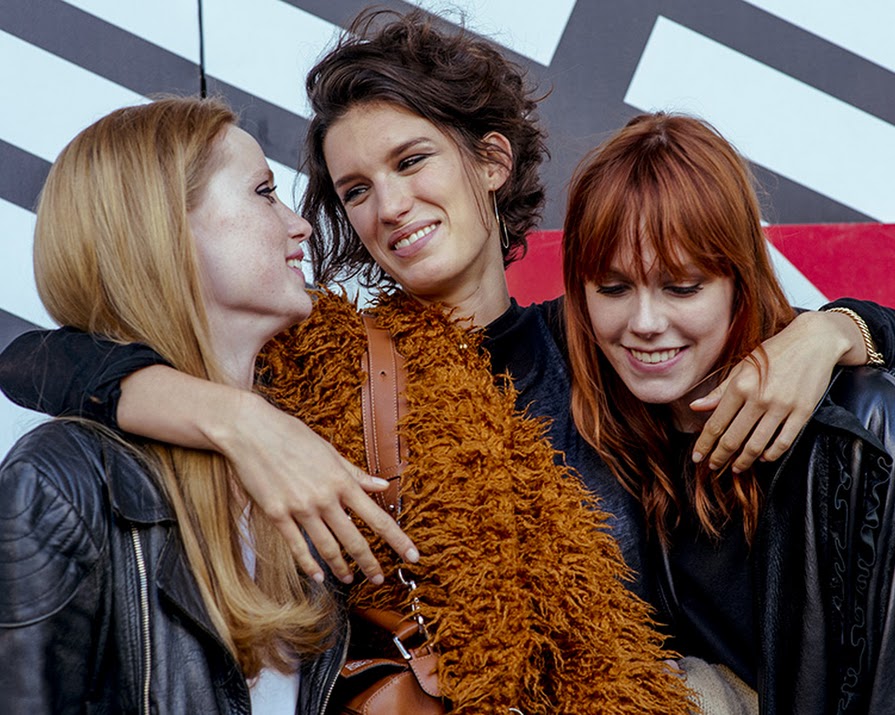
By IMAGE
29th Jan 2017
29th Jan 2017
Loving yourself is a term mostly used in the negative, but it’s time, says STEFANIE PREISSNER, we reclaimed it for all its worth: empowerment, acceptance and freedom.
In 4th class, we learned about the pyramids in Egypt. The whole thing seemed so arcane and wonderful that when an Egyptian girl joined our class after Christmas, there was a tacit battle between us all to get her as our new BFF. She didn’t speak much English. All we knew was that her father was a doctor in the local hospital and she looked like Jasmine from Aladdin. She wore a headscarf and nametag that said ?Sara?. For us ten- year-olds, this girl represented everything exotic and was often asked to answer questions about things offensively beyond her experience. ?Sara,could you see the Sphinx from your bedroom?? ?Sara, will you write me a note in hieroglyphics?? ?Sara, why don’t you ever wear gold snakes in your hair?? Her mother wore a full hijab when she collected her at the school gate. The family was shrouded in mystery and silence. Because Sara was a human representation of a Wonder of the World to us, it must have been so frustrating for her to be restricted to ?yes? and ?no? because of the language barrier.
One day, a group of girls were playing a game in the schoolyard. The sport du jour was owned by Rachel, and she made the rules. As far as I can remember, you had to dig a hole in the ground with your bare hands, and if you found anything shiny, you had to give it to Rachel. Rachel wanted Sara to play her game. Sara, wearing a Chanel headscarf and immaculately clean black patent shoes, declined. Rachel pipes up, ?Ok girls, don’t ever, ever ask Sara again – she loves herself.?
Even Sara understood the condemning blow that she’d been dealt. The ultimate Irish primary school insult: you love yourself. Also meaning, you think you are too good for us, you are selfish, you are a bad friend and a bad person, and you should feel terrible.
That accusation stuck to Sara much longer than the nametag she had worn in the first week. Incidentally, it led to a rumour that Sara was a princess in Egypt. We were all secretly jealous, but for Sara, it was like another nail in Tutankhamun’s coffin.
We all spend our time in school and afterwards, trying to self-deprecate, trying to belittle ourselves enough to avoid that accusation. Even today you hear sentences like ?She’s weak for herself?, ?She thinks she’s great?, ?If she were chocolate, she’d eat herself?. In fairness, I’ve only heard that last one once, but it stuck.
We seem to spend our lives putting other people before ourselves and then resenting them for it. We’re too afraid to say ?no? for fear of not being liked.
It’s more important to be liked than to do what feels good for us. We make ourselves emotionally small and co-operative just to be liked.
I think it might be part of the Catholic hangover, the martyrdom idea that if you suffer on earth, heaven will be bliss. The more I think about it, the more warped it feels.
We should probably learn the difference between selfishness and self-love.
Loving yourself or thinking you are great doesn’t mean you get to be a b***h. It doesn’t mean you can defend toxic behaviours with self- acceptance.
Sometimes it means loving yourself enough to accept that you have some issues that you need to confront. It might mean saying, ?I love myself enough to accept that this behaviour of mine needs to change.?
The lines often get blurred around body image. Let’s say you’re overweight. Do you practise self-love by accepting the body you have and not trying to change it? Maybe. But sometimes, I think, self-love means caring enough about yourself to say, ?I can see I haven’t treated my body so well recently and maybe I need to help myself by losing some weight.? If you love your kids, you feed them well, you mind them, you keep them warm and make sure they get enough sleep. In the sentence ?I love myself?, there are two persons. ?I? and ‘myself?. Which means one is accountable to the other much like the parent of a small child.
It’s a big scary change if you’re not used to it. But you can start small. Try actually answering truthfully when someone asks where you’d like to meet for lunch. When someone asks your opinion on something topical, try thinking about how you actually feel about it rather than trying to anticipate and match their opinion. Speak up when you disagree with something, and you’ll see the difference between discussion and disagreement.
We can be so afraid of appearing arrogant, difficult or selfish that we can’t speak up. We don’t need to turn into chameleons to fit in.
We don’t have to dig deep for someone else and then hand over whatever treasure we find just to be liked. Loving yourself is not selfish.
This appears in our February edition of IMAGE Magazine, out now?
























